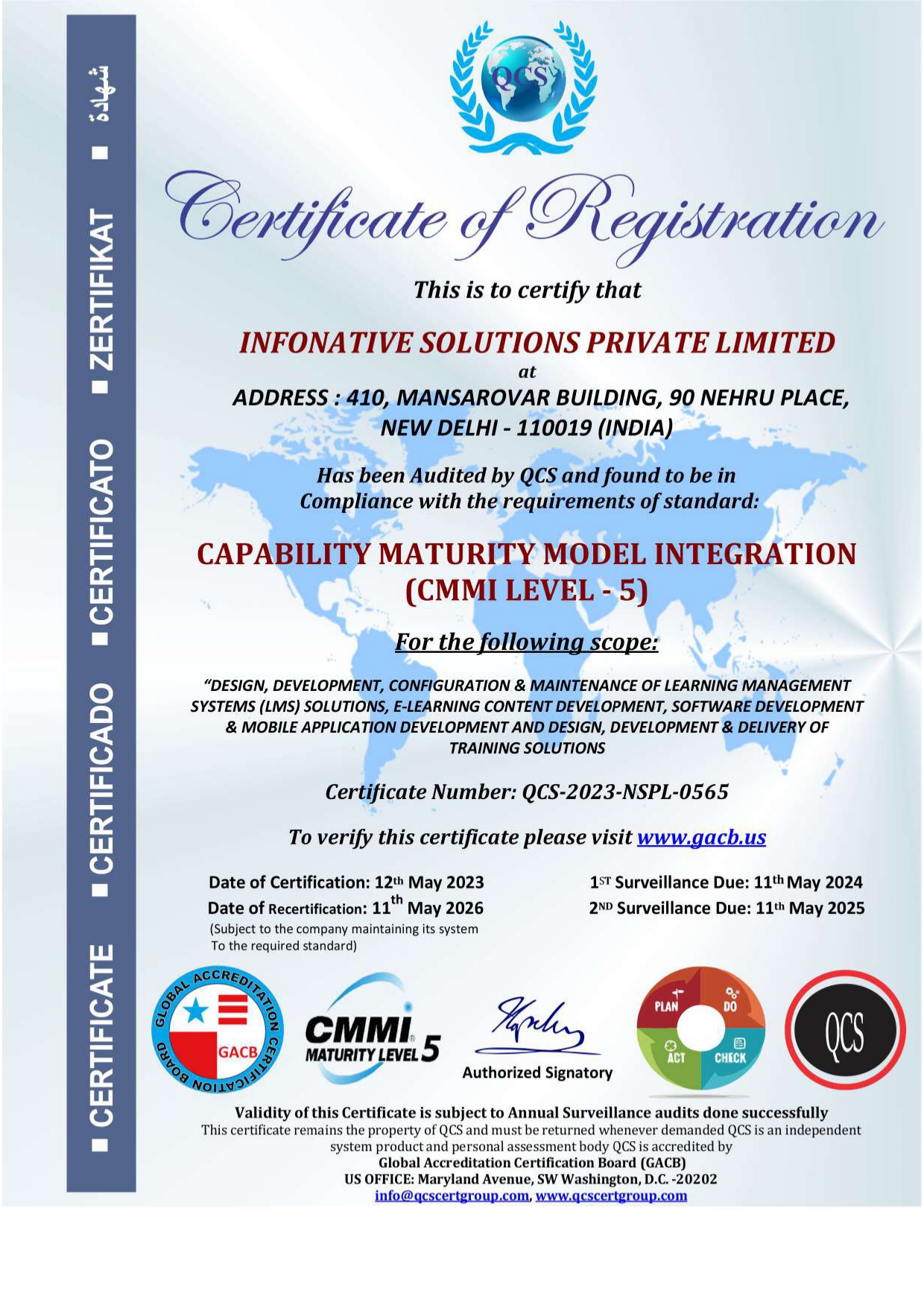ISO (International Organization for Standardization) and CMMI (Capability Maturity Model Integration) are two distinct but related frameworks that address different aspects of organizational processes and maturity levels.
- ISO Standards (e.g., ISO 9001, ISO 27001): ISO standards focus on specific aspects such as quality management (ISO 9001), information security management (ISO 27001), environmental management (ISO 14001), etc. These standards provide guidelines and requirements for organizations to establish and maintain effective systems and processes in these areas. ISO standards are widely recognized and can enhance an organization's credibility, competitiveness, and compliance with regulatory requirements.
- CMMI: CMMI, on the other hand, is a process improvement framework that focuses on enhancing an organization's overall capability and maturity levels across various process areas, including software engineering, systems engineering, project management, and more. CMMI provides a set of best practices and guidelines to help organizations improve their processes, increase efficiency, reduce risks, and deliver high-quality products or services consistently.
The relevance of ISO and CMMI frameworks depends on the specific needs and goals of an organization:
- ISO Standards Relevance: Organizations that prioritize specific areas such as quality management, information security, or environmental management may find ISO standards highly relevant. These standards provide a structured framework for establishing and maintaining effective management systems in these domains, leading to improved performance, compliance, and customer satisfaction.
- CMMI Relevance: Organizations involved in complex projects, software development, engineering, or service delivery may find CMMI highly relevant. CMMI helps organizations assess their process maturity levels, identify improvement areas, and implement best practices to achieve higher levels of process capability and performance. This can result in improved project outcomes, reduced defects, better resource utilization, and increased customer satisfaction.
- Combined Approach: Some organizations benefit from integrating both ISO standards and CMMI practices into their operations. For example, a software development company may adopt ISO 9001 for quality management processes while also implementing CMMI practices to enhance software development and project management capabilities. This combined approach can lead to comprehensive process improvements across different functional areas.
Ultimately, the relevance of ISO and CMMI frameworks depends on the organization's industry, goals, processes, and maturity levels. Organizations often assess their specific needs, conduct gap analyses, and tailor these frameworks to suit their unique requirements for continuous improvement and excellence in operations.

